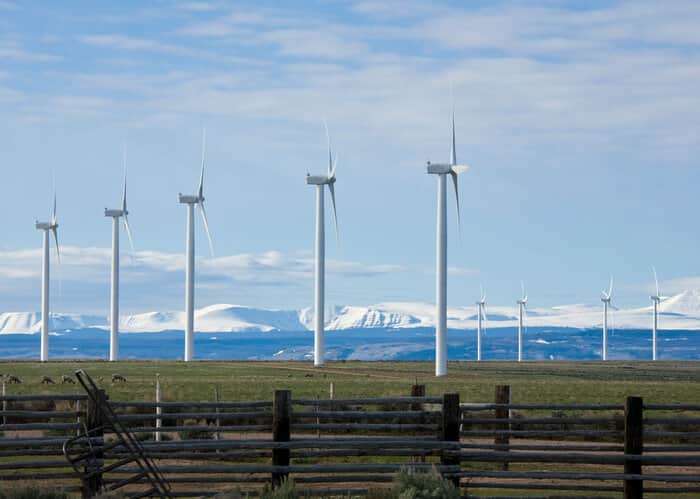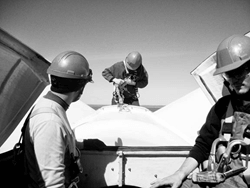As part of Gov. Deval Patrick's efforts to support the development of an offshore wind industry hub in Massachusetts, the Massachusetts Clean Energy Center (MassCEC) has announced the preliminary results of a multi-year study of marine wildlife and launched an effort to study the logistics of interconnecting offshore wind to the New England power grid.
MassCEC says both efforts are aimed at ensuring that offshore wind projects are responsibly sited and planned while positioning the Commonwealth to benefit from the 43,000 clean energy jobs the U.S. Department of Energy estimates will be created in the offshore wind industry nationally by 2030.
"Offshore wind presents a significant resource of clean, renewable energy for us to harness here in Massachusetts," says MassCEC CEO Alicia Barton. "By taking these proactive steps now, we can position the Commonwealth to realize significant job benefits of the burgeoning offshore wind industry."
The newly released results reflect the first year of a multi-year marine wildlife study sponsored by MassCEC in partnership with the U.S. Bureau of Ocean Energy Management, and conducted by the New England Aquarium and the Cornell University Bioacoustics Laboratory.
The first year's data was gleaned from 24 aerial surveys and 11 months of continuous underwater acoustic recording to count and assess the presence of large whales and sea turtles in areas off the southern coast of Martha's Vineyard that have previously been designated by the federal government as possible sites for offshore wind development.
During the first year, MassCEC says researchers counted six species of whales and three species of sea turtles. North Atlantic Right whales were spotted 24 times, with four additional probable sightings.
Researchers are currently gathering a second year of data that will be combined with first-year results to assess the location and configuration of future offshore wind energy development and to inform and streamline the permitting process for potential projects in federal waters south of Martha's Vineyard.
A full copy of the preliminary report can be found here.
In addition to releasing the initial results of the marine wildlife study, MassCEC says it is requesting proposals to help identify optimal locations and configurations for the transmission of renewable energy from the offshore wind planning areas to the regional electric grid.
The center says this study will touch on several facets of the transmission process, including specific transmission system configuration options, the technical feasibility of those options and potential interconnection points and associated infrastructure upgrade requirements.
According to MassCEC, the transmission siting effort is a key element in the update of the Massachusetts Ocean Management Plan, being led and managed by the Executive Office of Energy and Environmental Affairs' Office of Coastal Zone Management.
A copy of the request for proposals can be found here.



